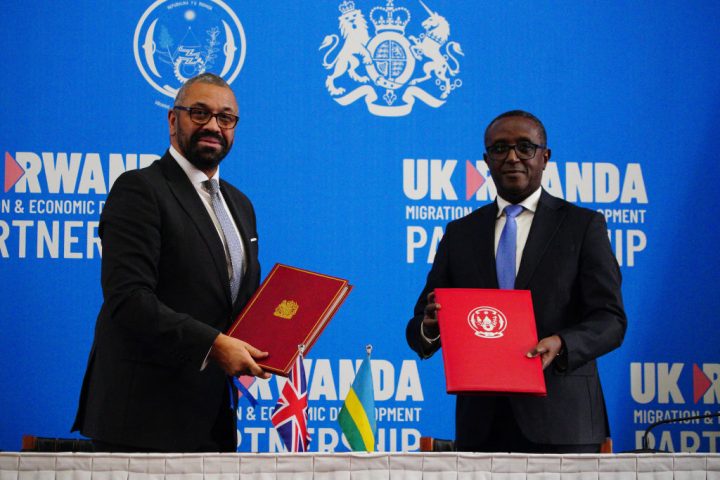James Cleverly has just signed a new treaty with Rwanda that the UK government hopes will lead to the deportation policy finally getting going. As he did so, the Home Secretary insisted that the Rwandan government had made a ‘strong commitment’ to the safety of asylum seekers – which was the key reason the Supreme Court had ruled against the policy. He told a press conference in Kigali that ‘we’ve addressed the issues that were raised by their Lordships’ and said Rwanda had established a reputation for the humane treatment of refugees. The treaty that was signed today ‘builds on that joint work’.
The Home Secretary was clearly very careful to suggest that the Rwandan government was already doing the work needed, rather than the UK having to swoop in to improve things. He spoke of the importance of an already strong judicial system being ‘on display’, rather than saying that it was being developed and improved. He also devoted considerable time in the press conference to praising his counterpart, Vincent Biruta, for putting up with what he thought was an unnecessary volume of criticism of Rwanda as a safe country.
The treaty with Rwanda was the easy bit: it is the legislation which is now the tricky bit
In questions from Rwandan media, Biruta was asked why ministers were ‘allowing themselves to be traduced’. The Rwandan foreign minister suggested there was a political agenda against his country in the UK and that it had been ‘unfairly treated’ by international organisations, the media and the courts. Cleverly also chipped in to say: ‘I have been uncomfortable with some of the tone and the volume of criticism against Rwanda.’
The more difficult question for Cleverly wasn’t whether he trusted Rwanda, but why he trusted that the deportations were going to start soon. He insisted that the UK could now ‘move quickly’ and that the treaty would be reflected in domestic legislation ‘soon’.
The treaty with Rwanda was the easy bit: it is the legislation which is now the tricky bit. Back in the UK, cabinet is meeting today to go through what sounds like a milkman’s order book of options. There is the ‘full fat’ approach – which won’t survive contact with peers, or even MPs, ‘semi-skimmed’ and ‘skimmed’. One of the latter two may get through parliament but will enrage those Tory MPs who see ‘full fat’ as a confidence issue.







Comments